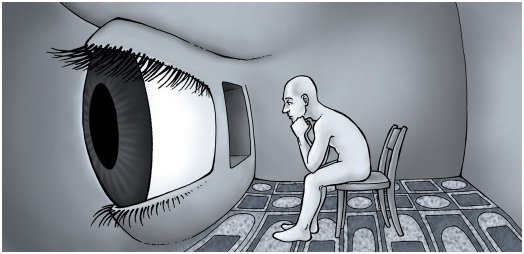Depersonalization Disorder (DPD) Causes, Symptoms, Diagnosis and Treatment

What Is Depersonalization Disorder?
Depersonalization disorder (DPD) is a mental disorder in which the sufferer has persistent or recurrent feelings of depersonalization and/or derealization.
It occurs when one persistently or repeatedly has the feeling that they are observing themselves from outside the body or have a sense that things around them aren’t real, or both.
Feelings of depersonalization and derealization can be very disturbing and may feel like one is dreaming.
Causes Of Depersonalization Disorder:
The definite cause of DPD is unknown.
However, it may be related to:
- Childhood trauma, such as:
- verbal
- emotional abuse
- witnessing domestic violence
- Growing up with a significantly impaired mentally ill parent
- Suicide or unexpected death of a close friend or family member
- Severe stress, such as:
- relationship,
- financial
- work-related problems
- Severe trauma, such as a car accident
Symptoms Of Depersonalization Disorder:
Some common symptoms of DPD include the following:
- Feelings that you’re an outside observer of your thoughts, feelings, your body or parts of your body, perhaps as if you were floating in air above yourself
- Feeling like a robot or that you’re not in control of your speech or movements
- The sense that your body, legs or arms appear distorted, enlarged or shrunken, or that your head is wrapped in cotton
- Emotional or physical numbness of your senses or responses to the world around you
- A sense that your memories lack emotion
- Feelings of being alienated from or unfamiliar with your surroundings, perhaps like you’re living in a movie
- Feeling emotionally disconnected from people you care about, as if you were separated by a glass wall
- Surroundings that appear distorted, blurry, colorless, two-dimensional or artificial, or a heightened awareness and clarity of your surroundings
- Distortions in perception of time, such as recent events feeling like distant past
- Distortions of distance and the size and shape of objects
Diagnosis Of Depersonalization Disorder:
DPD can be diagnosed if one fulfills the DSM criteria.
The criteria include the following points:
- Longstanding or recurring feelings of being detached from one’s mental processes or body, as if one is observing them from the outside or in a dream.
- Reality testing is unimpaired during depersonalization
- Depersonalization causes significant difficulties or distress at work, or social and other important areas of life functioning.
- Depersonalization does not only occur while the individual is experiencing another mental disorder, and is not associated with substance use or a medical illness.
Treatment Of Depersonalization Disorder:
DPD can be treated via the following ways:
- Cognitive behavior therapy
- Medications
- luoxetine (Prozac),
- clomipramine (Anafranil)
- Clonazepam (Klonopin).
By : Natural Health News




